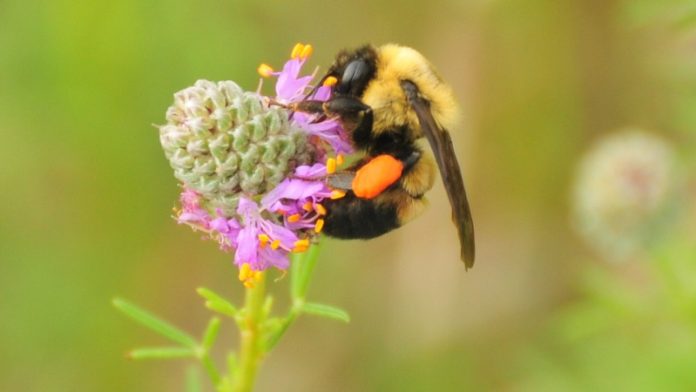Cheerios announced it has given away 1.5 billion wildflower seeds as part of a campaign to boost the global bee population, exceeding its goal tenfold.
General Mills has pulled its bee mascot Buzz from Honey Nut Cheerios cereal boxes in the US to mark the start of the brand’s #BringBackTheBees campaign to help support pollinator conservation.
“As a General Mills cereal built around nutrition, helping pollinators get the key nutrition they need through fun, family-friendly activities like planting wildflowers is a natural fit,” Susanne Prucha, director of marketing for Cheerios, said in a statement.
“Our commitment to increasing the habitat for pollinators is one way we are continuously striving to be a company that not only makes products people love, but a company that pursues creative solutions to make our world a better place for all families.”
Last year the food company announced, by 2020, farms that grow oats for Cheerios will house approximately 3,300 total acres of dedicated pollinator habitat on 60,000 acres of land.
General Mills also revealed it has given away 1.5 billion free wildflower seeds so people can grow them for bees.
However, not everyone appears to be on the same page with the cereal brand, with ecologist Kathryn Turner telling Lifehacker that several of the seed types are not native to the US and that they may not even be helpful for bees.
General Mills have refuted the claims in a statement on Facebook, saying that their seeds are bee friendly.
“The flower varieties within the Bee Friendlier Mix were selected for their flowers which produce nectar and pollen that are attractive to bees and other pollinators,” the company said.
“The mixture contains annuals, biennials, and perennials that produce flowers throughout the entire growing season (early, mid, and late) in a wide range of colours.”
According to the Environmental Protection Agency, a third of food around the world would disappear without honeybees. Greenpeace research suggests bees have seen an unprecedented scale of habitat loss since 2008, with more than nine million acres of grass and prairie land converted to crop land.
Disappearing bee population could pose problems for General Mills as 30% of the company’s products rely on pollination.















